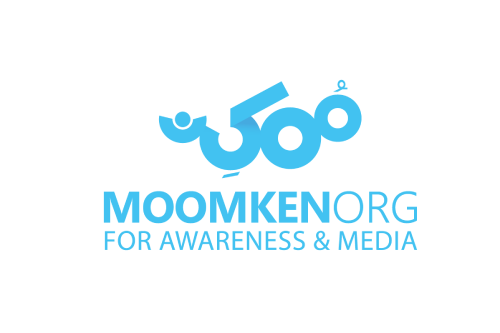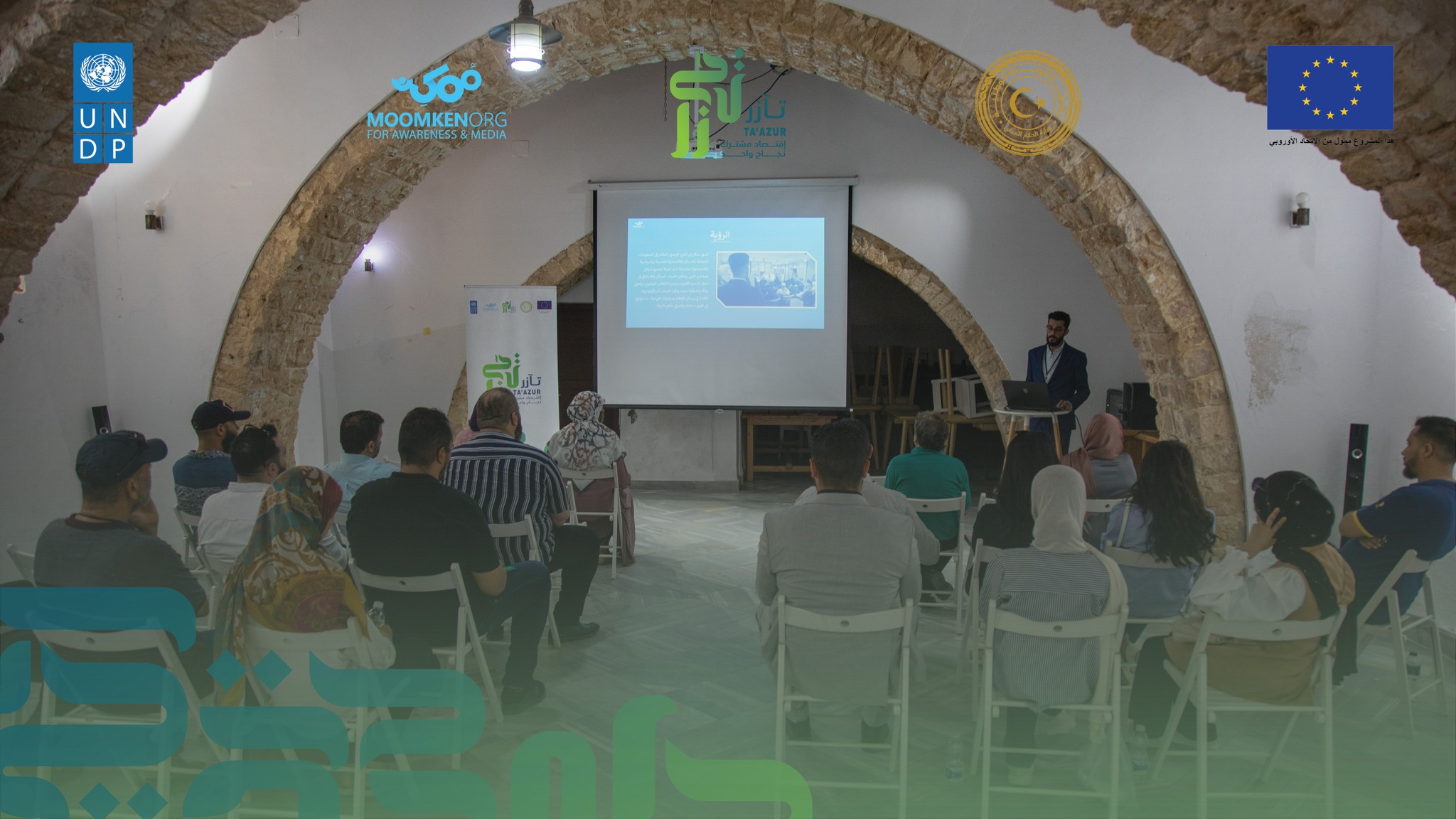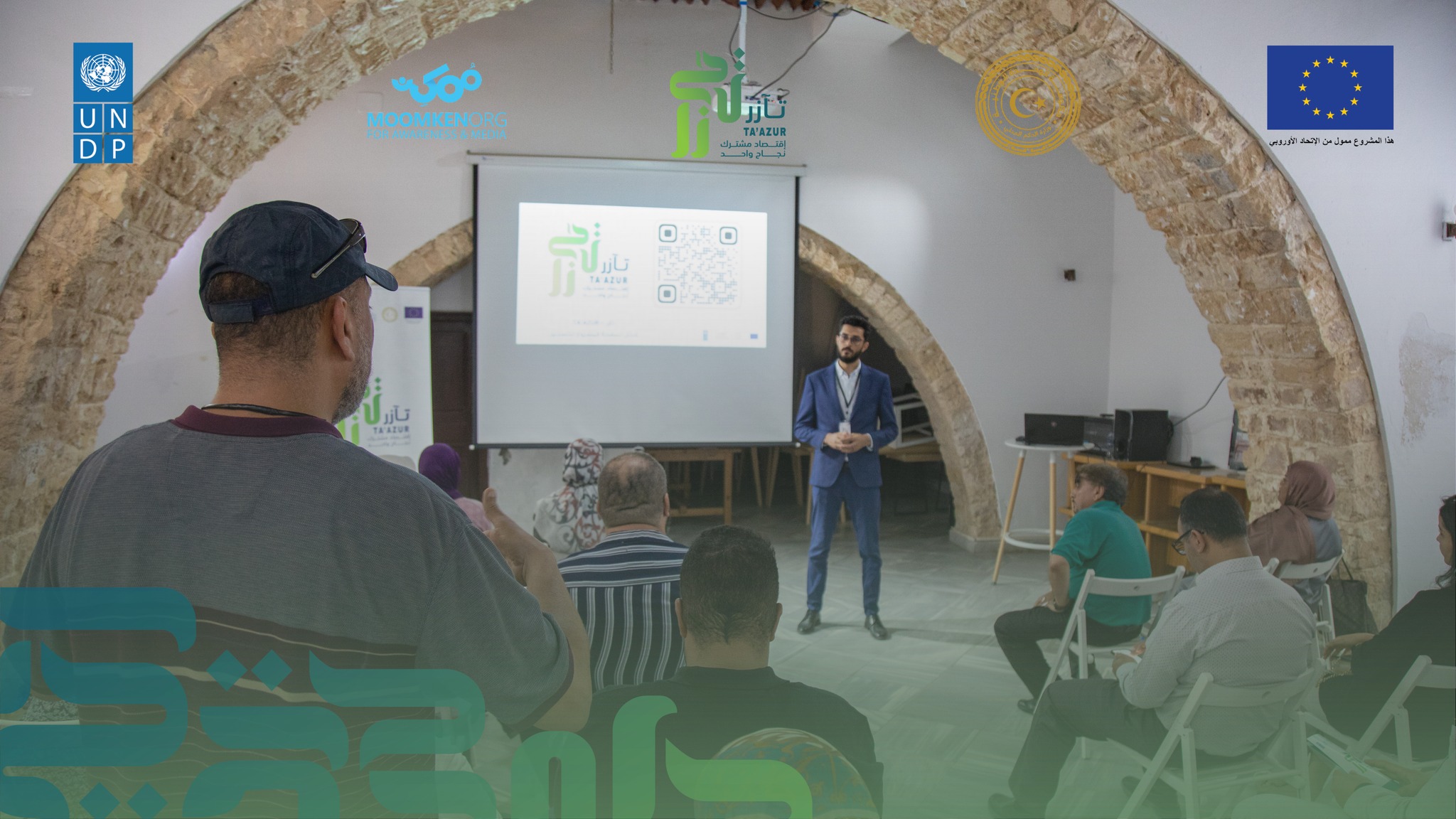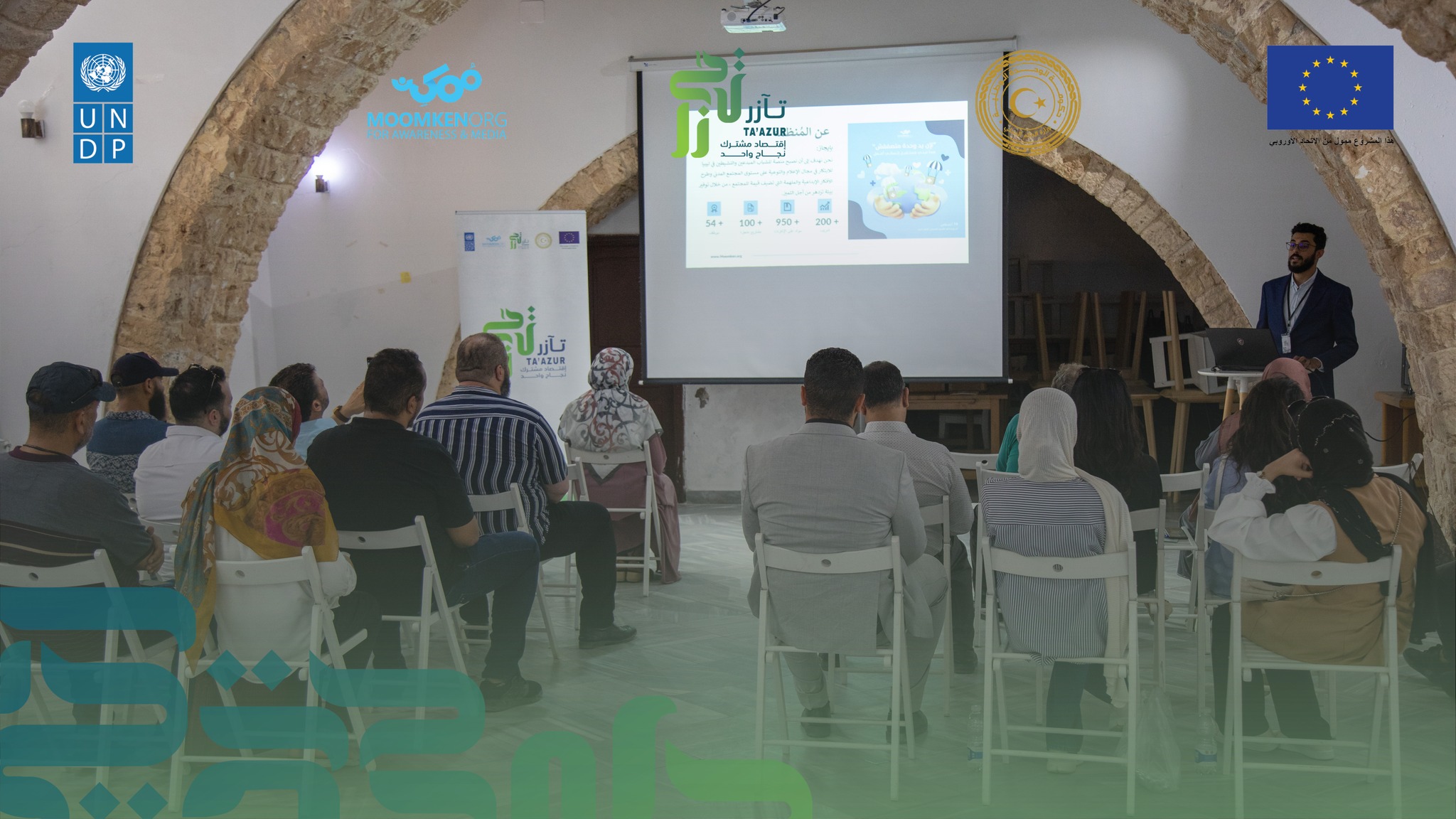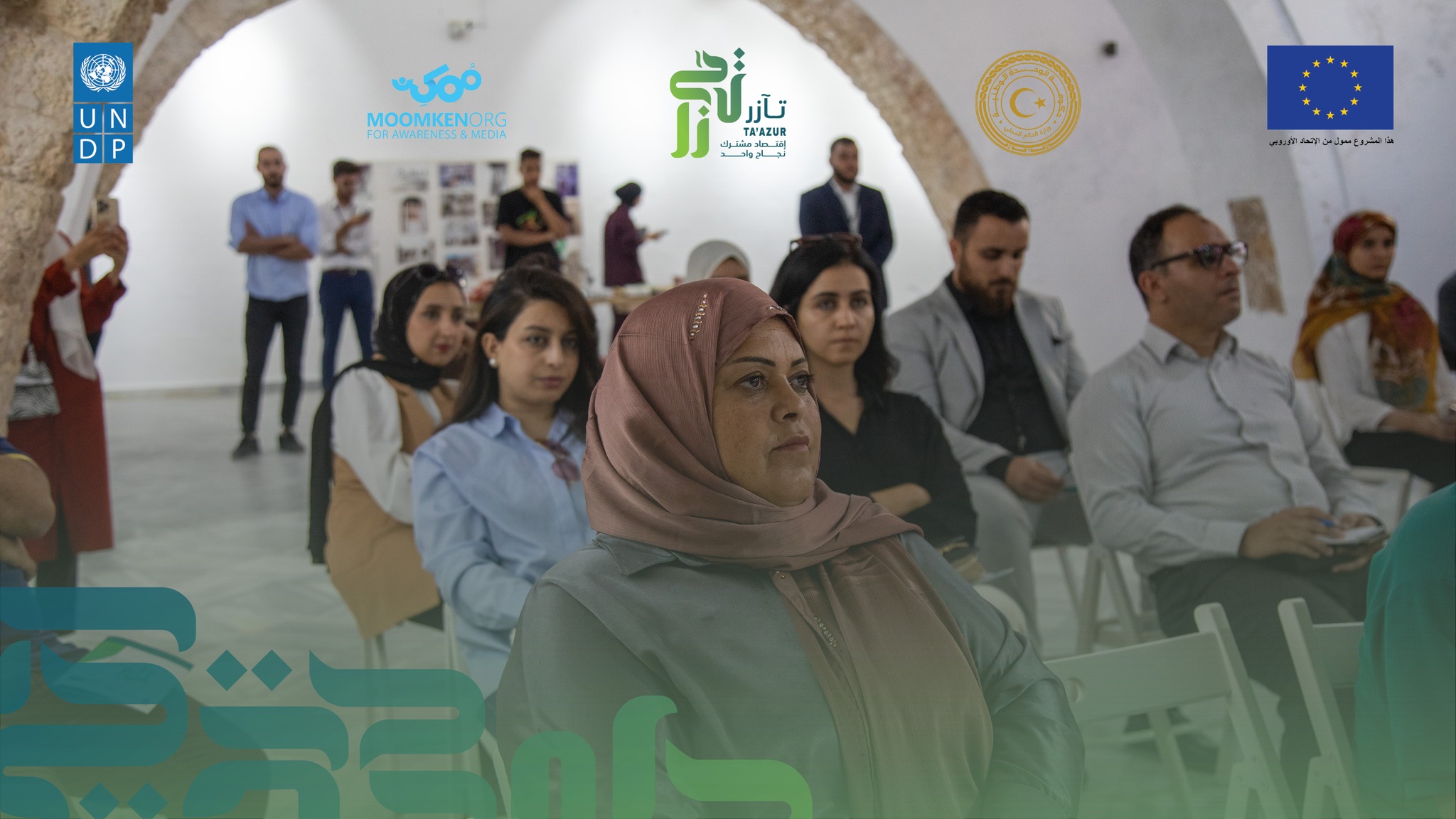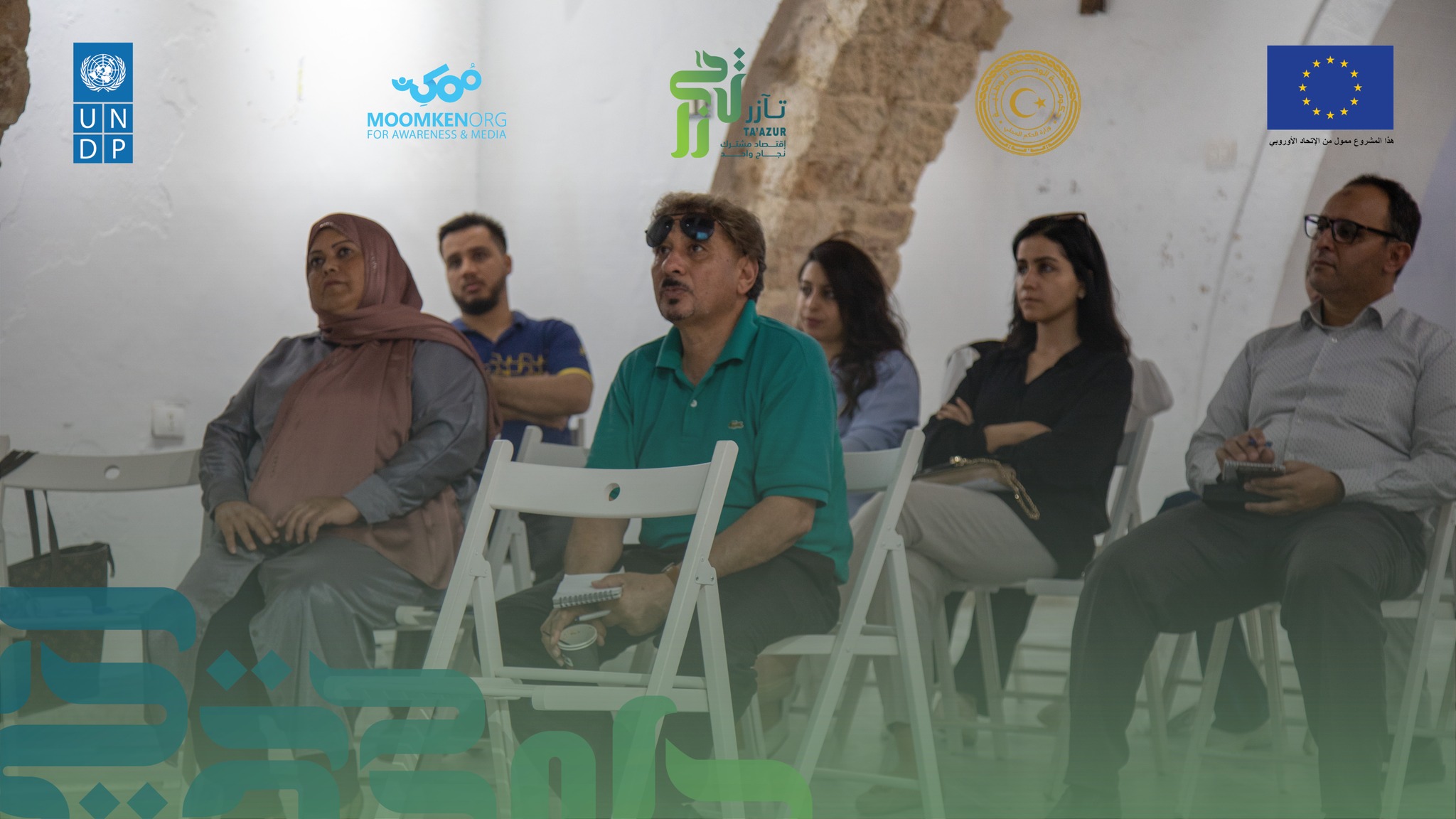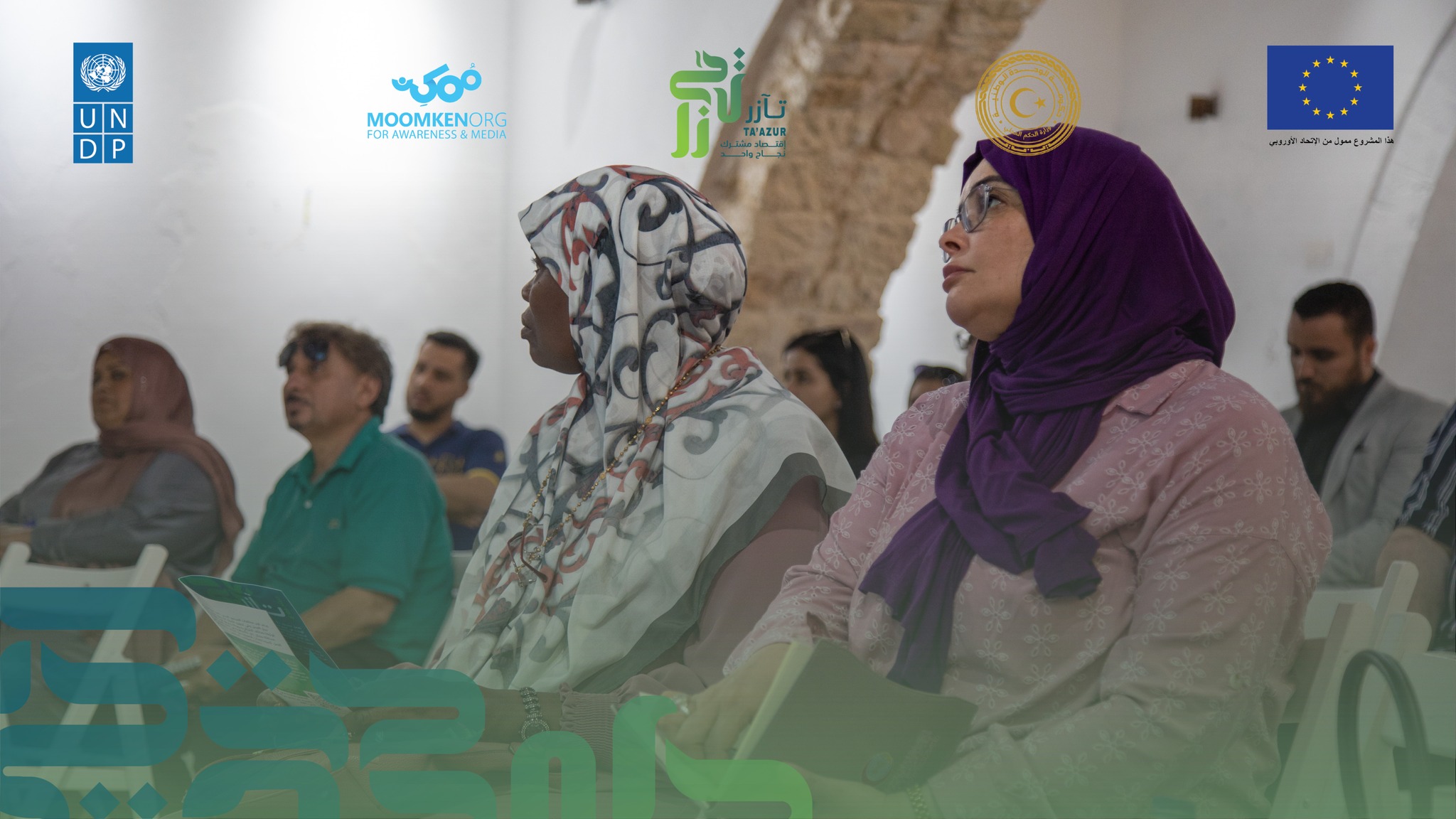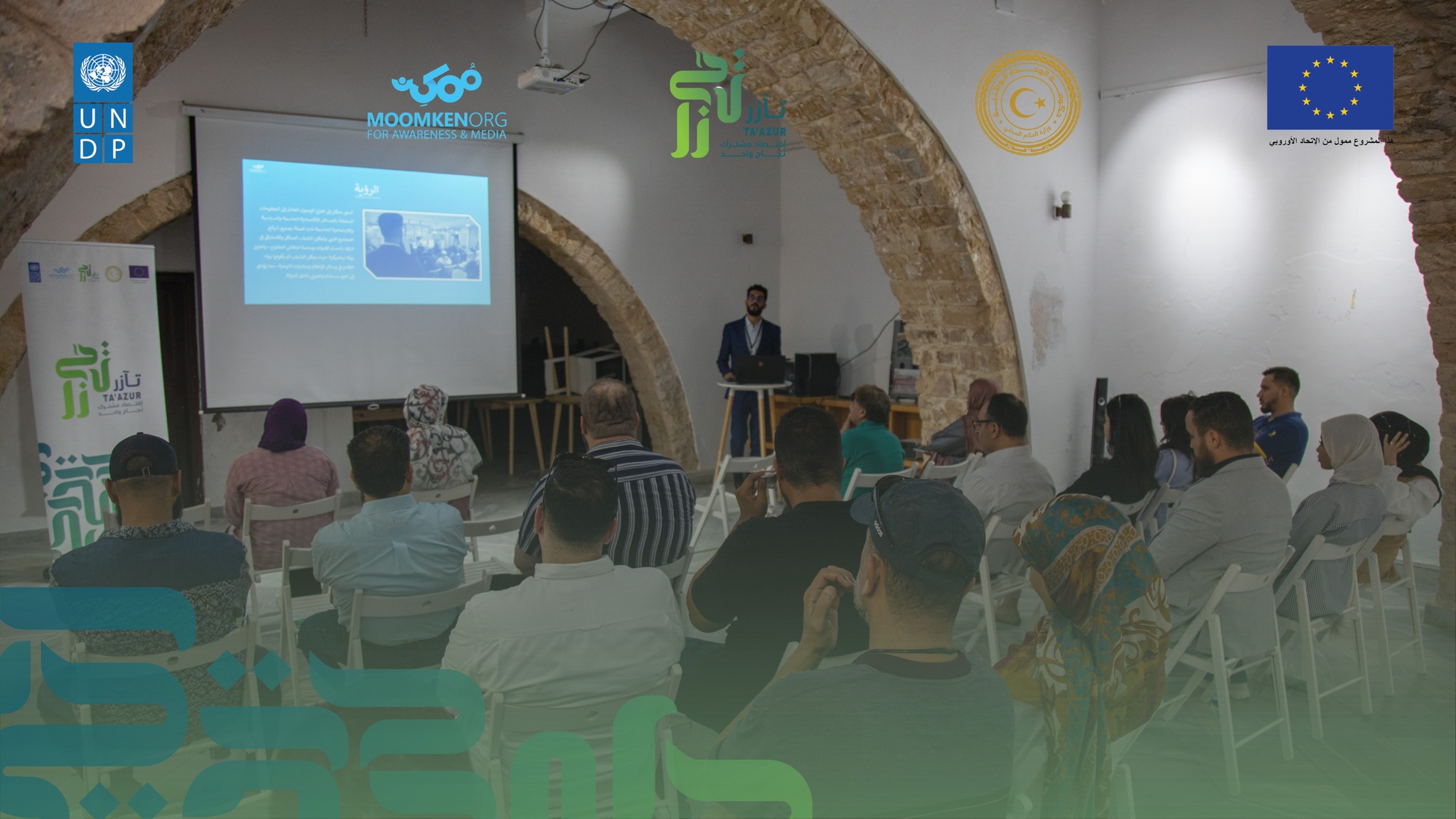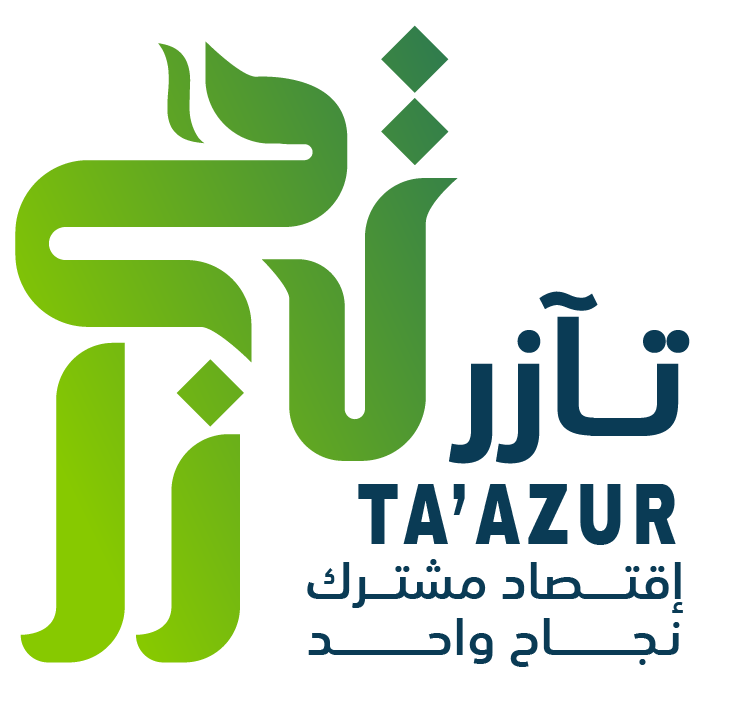
تواجه بعض المجموعات، سواء في المنطقة الجنوبية أو في جميع أنحاء البلاد، عقبات إضافية في الوصول إلى فرص سبل العيش. على سبيل المثال، زاد معدل البطالة بين الشباب في ليبيا بشكل مطرد خلال العقدين الماضيين، حيث وصلت تقديرات منظمة العمل الدولية لعام 2020 إلى تصنيفه كثالث أعلى معدل بطالة في العالم بنسبة 51.5%. في سبها وأوباري، أبرزت تقييمات سوق العمل التي أجرتها منظمة REACH معدلات المشاركة المنخفضة للشباب الليبي، ولا سيما بين الإناث. توجد أيضًا عوائق متعلقة بالنوع الاجتماعي، مثل القيود على استقلالية النساء في المناطق المحافظة. غالبًا ما تقتصر خيارات توظيف النساء على العمل غير الرسمي في المزارع، أو كممرضات أو معلمات، ويعتمد وصولهن إلى العمل على قبول الأسرة. يواجه العمال المهاجرون تحديات تتعلق بغموض الاتفاقيات التعاقدية، مما يزيد من تعرضهم للاستغلال في مكان العمل.
Certain groups, both in the southern region and throughout the country, face additional barriers to accessing livelihood opportunities. For instance, Libya's youth unemployment rate has steadily increased over the past two decades, with the 2020 International Labour Organization estimates ranking it as the third highest in the world at 51.5%. In Sebha and Ubari, labor market assessments conducted by REACH highlighted the low participation rates of Libyan youth, particularly among females. Gender-related barriers also exist, such as restrictions on women's autonomy in conservative areas. Women's employment options are often limited to informal work on farms, or as nurses or teachers, and their access to employment depends on familial acceptance. Migrant laborers face challenges related to informality in their contractual arrangements, leading to increased vulnerability to exploitation in the workplace.
المقدمة
منذ فترة طويلة، اعتمدت ليبيا بشكل كبير على القطاع العام لتوفير فرص العمل، مع دور ضئيل للقطاع الخاص. لتعزيز تقدم البلاد، من الضروري تطوير قطاع خاص أقوى قادر على توليد فرص عمل أكثر، خاصةً للفئات الضعيفة مثل الشباب والأشخاص النازحين داخليًا والمقاتلين السابقين. بالاعتراف بأهمية تطوير القطاع الخاص، نفذت منظمات دولية مختلفة برامج تدريب مهني، وبرامج تقنية، ومبادرات دعم سبل العيش.
كانت المنطقة الجنوبية من ليبيا تاريخيًا أقل مناطق تطويرًا اقتصاديًا، حيث يفتقر العديد من المدن إلى الخدمات الأساسية. تم تفاقم هذا الانخفاض في التطوير بسبب فترات طويلة من النزاع منذ عام 2011. يحمل القطاع الزراعي إمكانيات لتطوير المنطقة.
التحديات مثل نقص البنية التحتية للمياه والأسواق، والوصول المحدود إلى المدخلات الزراعية والأدوات عالية الجودة، والمشاركة المنخفضة للمزارعين في الأنشطة ذات القيمة المضافة، وتقلبات الأسعار، ونقص القروض والائتمان، ونقص خدمات التوسعة يعوق إنتاج القطاع الزراعي.
Introduction
Libya has historically relied heavily on the public sector for employment, with the private sector playing a minor role. To advance the country's progress, it is crucial to develop a stronger private sector that can generate more employment opportunities, particularly for vulnerable groups such as youth, internally displaced persons (IDPs), and former fighters. Recognizing the significance of private sector development, various international organizations have implemented vocational training, technical programs, and livelihood assistance initiatives.
The southern region of Libya has historically been the least economically developed area, with many cities lacking basic services. This underdevelopment has been exacerbated by prolonged periods of conflict since 2011. The agricultural sector holds potential for the region's development.
Challenges such as inadequate water and market infrastructure, limited access to quality agricultural inputs and tools, low engagement of farmers in value-added activities, price fluctuations, lack of loans and credit, and inadequate extension services hinder agricultural production.
في زوارة، بلدة أمازيغية ساحلية بالقرب من الحدود الغربية، يظهر قطاع الزراعة والاقتصاد الأزرق واعدًا. ومع ذلك، يواجه الاقتصاد الأزرق المحلي تحديات، بما في ذلك حظر تصدير الأسماك وعدم وجود تنسيق بين السلطات المعنية، مما يؤثر على تطوير المهارات ونمو القطاع بشكل عام. في تاورغاء، وكيكلا، وبنغازي، تشكل وجود الأشخاص النازحين داخليًا بسبب النزاع تحديات فريدة. فقد انتقل العديد من النازحين الداخليين إلى مراكز السكان الكبيرة مثل طرابلس بحثًا عن الاستقرار وفرص العمل. تمنع نقص الفرص الاقتصادية، الناجم عن فقدان السكان، عودة النازحين إلى مناطق مثل كيكلا وتاورغاء. بالإضافة إلى ذلك، تعوق البنية التحتية غير الملائمة والخدمات الأساسية، بما في ذلك الكهرباء والغاز ووسائل النقل والرعاية الصحية والوصول إلى مياه الشرب الآمنة، النشاط الاقتصادي بشكل أكبر.
تلعب منظمات المجتمع المدني المحلية دورًا هامًا في دعم سبل العيش، نظرًا لروابطها المباشرة مع المجتمعات والوصول إلى الفئات الضعيفة. ومع ذلك، فإنها تظل غير مستغلة إلى حد كبير كمنفذين مباشرين لبرامج دعم سبل العيش. في مجتمعات مثل كيكلا وتاورغاء، حيث تفتقر إلى موارد مثل المعاهد التقنية والتدريب المهني، يمكن دعم منظمات المجتمع المحلي لتطوير أنشطة دعم سبل العيش مصممة حسب السياق المحلي. يمكن أن تكون خبرتهم، عندما يتم دمجها مع الدعم التقني والرقابة الكافية، لها تأثير معنوي.
In Zuwara, a coastal Amazigh town near the western border, the agricultural sector and blue economy show promise. However, the local blue economy faces challenges, including a ban on fish exports and a lack of coordination among relevant authorities, impacting skills development and overall sector growth. In Tawerga, Kikla, and Benghazi, the presence of internally displaced persons due to conflict poses unique challenges. Many IDPs have relocated to major population centers like Tripoli in search of stability and economic opportunities. The lack of economic prospects, stemming from population loss, prevents the return of IDPs to areas like Kikla and Tawerga. Additionally, inadequate infrastructure and essential services, including electricity, gas, transportation, healthcare, and access to safe water, further hinder economic activity.
Local civil society organizations (CSOs) have a significant role to play in supporting livelihoods, given their direct ties to communities and access to vulnerable populations. However, they remain largely untapped as direct implementers of livelihood assistance programs. In communities like Kikla and Tawerga, where resources like technical and vocational education and training (TVET) institutes are absent, local CSOs can be supported to develop livelihood assistance activities tailored to the local context. Their expertise, when coupled with sufficient technical support and oversight, can have a meaningful impact.
الأهداف والمستفيدين
سيتركز هذا المشروع على شراكة مع 10-15 منظمة منظمات المجتمع المدني (CSOs) التي تعمل في البلديات السبع المختارة. يجب أن تصل الأنشطة المدعومة من هذه المنظمات المدنية إلى ما لا يقل عن 500 مستفيد. ستستغل مومكن شبكتها الوطنية الواسعة واتصالاتها مع منظمات المجتمع المدني في جميع أنحاء البلاد لإقامة اتصالات مع الجهات المحلية للمجتمع المدني. ستلعب شبكة منسقي مومكن المحليين، المتمركزة في جميع أنحاء ليبيا، دورًا حيويًا في التفاعل المباشر مع هذه المنظمات المدنية بسبب ارتباطاتهم المحلية القوية.
Goals and Beneficiaries
This project will focus on partnering with 10-15 civil society organizations (CSOs) operating in the seven selected municipalities. The supported activities of these CSOs should collectively reach a minimum of 500 beneficiaries. To establish connections with local civil society actors, Moomken will leverage its extensive national network and connections to CSOs across the country. Moomken's local coordinator network, stationed throughout Libya, will play a pivotal role in directly engaging with these CSOs due to their strong local connections.
بالإضافة إلى ذلك، تمتلك مومكن مكاتب في ثلاث من المناطق المستهدفة: طرابلس (مقر مومكن الرئيسي)، سبها، وبنغازي. ستسهل هذه المكاتب جهود التواصل مع منظمات المجتمع المدني المحلية وستكون قواعد لتقديم دعم إضافي إذا لزم الأمر. سيتم منح الأفضلية لمنظمات المجتمع المدني ذات الخبرة السابقة في التفاعل وتنفيذ البرامج للفئات الضعيفة.
يهدف المشروع إلى تلبية احتياجات مجموعات مختلفة من الفئات الضعيفة، بما في ذلك النساء والشباب والمجتمعات المهاجرة والأشخاص النازحين داخليًا والعائدين والأقليات العرقية/اللغوية. في حين سيشارك منظمات المجتمع المدني المنفذة مباشرة مع هذه الفئات، ستقدم مومكن إرشادات استنادًا إلى تجربتها الخاصة في العمل مع هذه الجماعات في مشاريع متنوعة، بما في ذلك مبادرات دعم سبل العيش.
Additionally, Moomken has offices in three of the targeted areas: Tripoli (Moomken’s headquarters), Sabha, and Benghazi. These offices will facilitate outreach efforts to local civil society organizations and serve as bases for providing additional support if required. Preference will be given to CSOs with prior experience in engaging and implementing programs for vulnerable populations.
The project aims to address the needs of various vulnerable populations, including women, youth, migrant communities, internally displaced persons (IDPs), returnees, and ethnic/linguistic minorities. While the implementing CSOs will directly engage with these populations, Moomken will provide guidance based on its own experience working with these groups in diverse projects, including livelihood assistance initiatives.
تصميم المشروع
يهدف المشروع إلى تعزيز سبل العيش المحلية في سبع بلديات مستهدفة من خلال دعم منظمات المجتمع المدني المحلية. يسعى المشروع إلى الاستجابة لاحتياجات المستفيدين المحليين من خلال اختيار قطاعات لتطوير سبل العيش وتقديم الدعم ذي الصلة وفقًا للسياق المحلي. كما يهدف إلى الوصول إلى الفئات الضعيفة وتزويد المستفيدين بمهارات وأدوات جديدة للاستمرار في سبل عيشهم بعد تنفيذ المشروع.
من المتوقع أن يولد المشروع أنشطة اقتصادية جديدة نتيجة مباشرة للتدخل يمكن الاستمرار بها في المستقبل. كما يهدف أيضًا إلى ضمان أن تكون منظمات المجتمع المدني في وضع جيد لمواصلة دعم سبل العيش بناءً على تجربتها من المشروع. سيتم قياس نتائج المشروع باستخدام نهج جمع البيانات بأساليب متعددة، بما في ذلك استطلاعات المستفيدين وأصحاب المصلحة، وإجراء مقابلات عميقة، ومراجعة وثائق مراقبة وتقييم البرنامج.
Project Design
The project aims to strengthen local livelihoods in seven targeted municipalities by supporting local Civil Society Organizations (CSOs). The project seeks to respond to the needs of local beneficiaries by choosing sectors for livelihood development and support relevant to the local context. It also aims to reach vulnerable populations and equip beneficiaries with new skills and tools to sustain their livelihoods post-project implementation.
The project is expected to generate new economic activities as a direct result of the intervention that can be sustained into the future. It also aims to ensure that CSOs are well placed to continue supporting livelihoods given their experience from the project. The project's outcomes will be measured using a mixed-methods data collection approach, including beneficiary and stakeholder surveys, in-depth interviews, and a review of program M&E documents.
الأنشطة المقترحة للمشروع عبارة عن ما يلي:
1. تقييم سريع لاحتياجات قدرات ومهارات منظمات المجتمع المدني:
تتضمن هذه النشاط إجراء تقييم شامل لكل منظمة منظمات المجتمع المدني (CSO). يقوم التقييم بتحديد قدرات المنظمة، واحتياجات المهارات، وفهمها لسبل العيش المحلية والقطاعات الاقتصادية. ستؤثر نتائج هذا التقييم في مستوى الدعم والمراقبة اللازمة لكل منظمة منظمات المجتمع المدني.
2. فعاليات دعم تطوير مقترحات منظمات المجتمع المدني:
هذه هي الفعاليات التي تم تصميمها لمساعدة منظمات المجتمع المدني في تطوير حزم مقترحاتها الكاملة. يتاح لمنظمات المجتمع المدني الفرصة للحصول على توجيه شخصي، والذي يمكن أن يساعدهم في إنشاء مقترحات أكثر فعالية وموجهة لمشاريعهم.
3. اختيار المستفيدين وتوقيع العقود:
في هذا النشاط، يتم اختيار منظمات المجتمع المدني للمشاركة في البرنامج استنادًا إلى تقديمات مقترحاتهم ومجموعة من معايير الاختيار. يتم بعد ذلك إعلام منظمات المجتمع المدني المختارة وتوقيع العقود، مما يرسخ مشاركتهم في البرنامج بشكل رسمي.
3. اختيار المستفيدين وتوقيع العقود:
في هذا النشاط، يتم اختيار منظمات المجتمع المدني للمشاركة في البرنامج استنادًا إلى تقديمات مقترحاتهم ومجموعة من معايير الاختيار. يتم بعد ذلك إعلام المنظمات المدنية المختارة وتوقيع العقود، مما يُشكّل مشاركتهم في البرنامج رسميًا.
4. توريد وتوزيع منح دعم سبل العيش لمنظمات المجتمع المدني:
خلال فترة التدريب، يقوم مدير المشتريات بالحصول على الأصول المحددة في التقييم والمقترحات. ثم يتم توزيع هذه الأصول على منظمات المجتمع المدني كمنح دعم سبل العيش، مما يوفر لهم الموارد التي يحتاجونها لتنفيذ مشاريعهم.
5. مراقبة مستمرة لتنفيذ مشروع سبل العيش من قبل منظمات المجتمع المدني:
هذا النشاط ينطوي على تقديم دعم ومتابعة مستمرة لمنظمات المجتمع المدني طوال فترة تنفيذ المشروع. يقدم الموظفون المحليون هذا الدعم، مضمنين بذلك تنفيذ منظمات المجتمع المدني لمشاريعها بشكل فعال ومعالجة أي مشكلات قد تنشأ.
6. تقييم تأثير جماعي:
في نهاية المشروع، يتم إجراء تقييم تأثير جماعي. يقوم هذا التقييم بتقييم تأثير المشروع على سبل العيش المحلية في كل مجتمع، مما يقدم رؤى قيمة حول فعالية المشروع والمجالات التي يمكن تحسينها في المستقبل.

The proposed project activities are as follows:
1. Rapid CSO Capacity and Skills Needs Assessment:
This activity involves conducting a comprehensive evaluation of each Civil Society Organization (CSO). The assessment identifies the organization’s capacities, skills needs, and understanding of local livelihoods and economic sectors. The results of this assessment will inform the level of support and monitoring each CSO requires.
2. CSO Proposal Development Support Events:
These are events designed to assist CSOs in developing their full proposal packages. CSOs are given the opportunity to receive in-person guidance, which can help them create more effective and targeted proposals for their projects.
3. Select Beneficiaries and Sign Contracts:
In this activity, CSOs are selected to participate in the program based on their proposal submissions and a set of selection criteria. The selected CSOs are then notified and contracts are signed, formalizing their participation in the program.
4. Procure and Distribute Livelihood Support Grants to CSOs:
During the training period, the Procurement Manager acquires assets identified in the assessment and proposals. These assets are then distributed to the CSOs as livelihood support grants, providing them with the resources they need to implement their projects.
5. Ongoing Monitoring of CSO Livelihood Project Implementation:
This activity involves continuous support and monitoring of the CSOs throughout the project implementation period. Local staff provide this support, ensuring that the CSOs are effectively implementing their projects and addressing any issues that may arise.
6. Collective Impact Assessment:
At the end of the project, a Collective Impact Assessment is conducted. This assessment evaluates the impact of the project on local livelihoods in each community, providing valuable insights into the project’s effectiveness and areas for future improvement.

